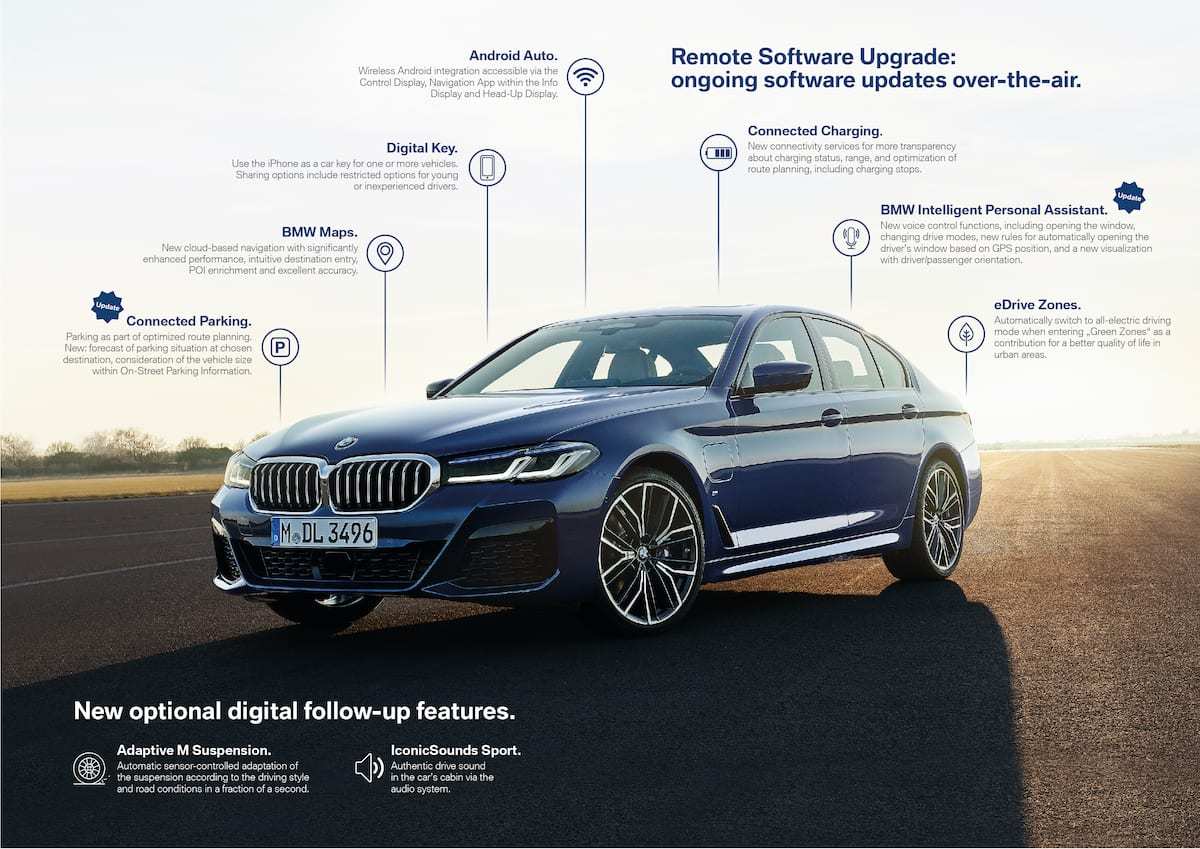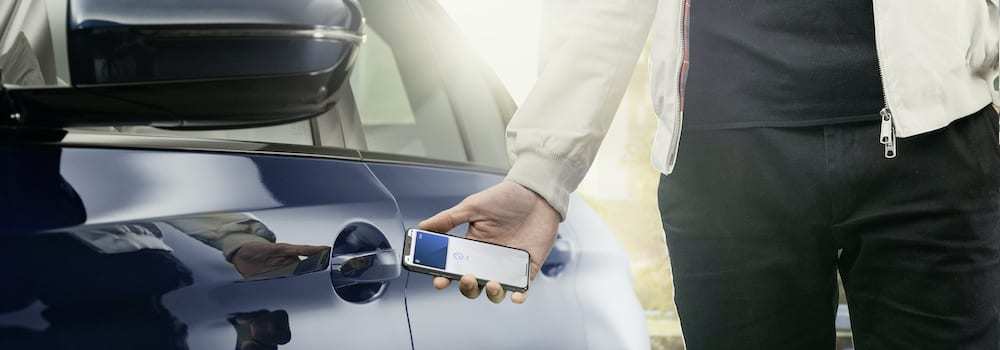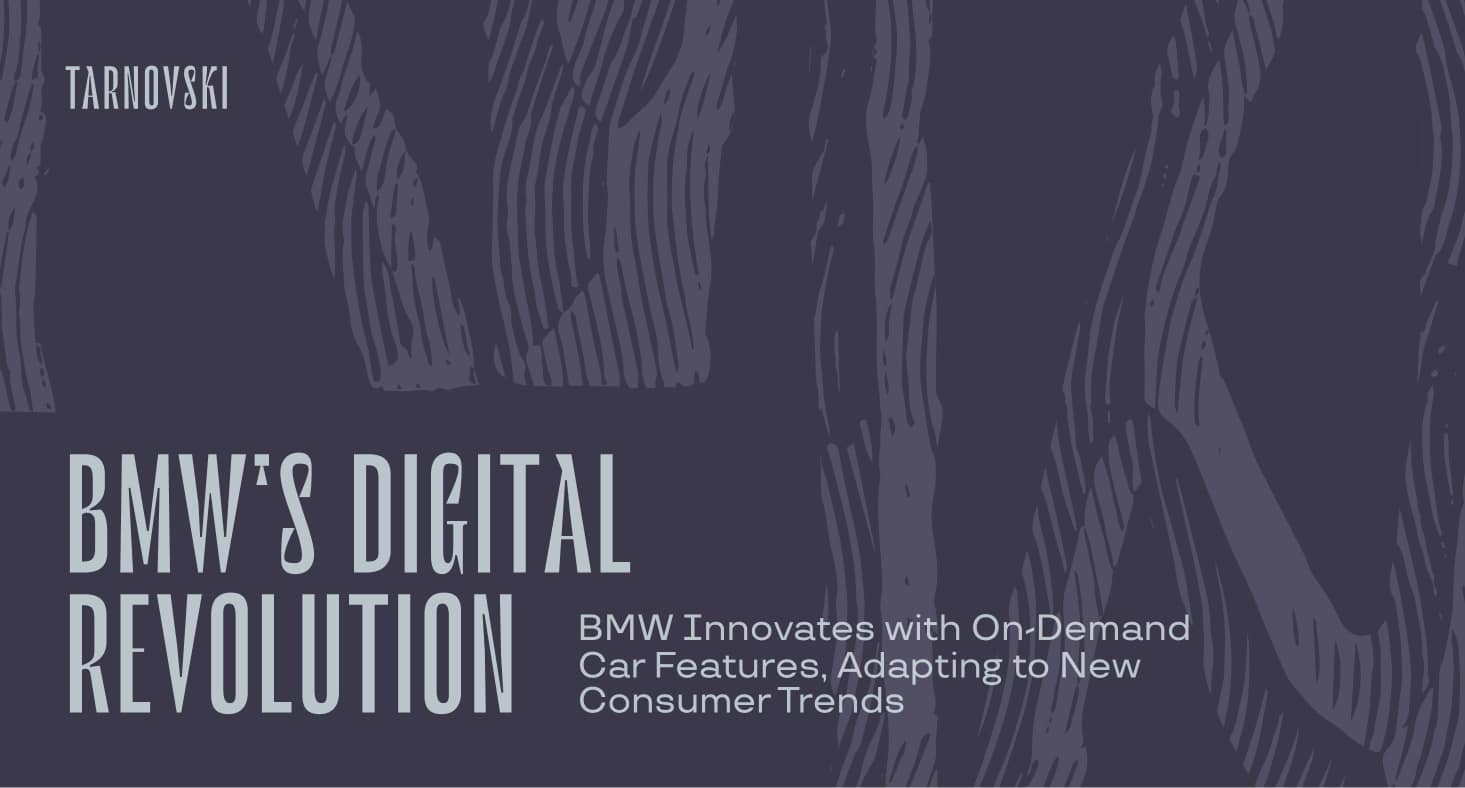BMW is set to revolutionize car ownership by introducing the ability to activate hardware options on-demand through an app, even after purchasing the car.
Beyond this innovative approach lies a deeper insight into shifting consumer behavior.
There’s this interesting announcement from BMW - https://tcrn.ch/43uzBzA. The brand is planning to introduce the possibility to activate hardware options on-demand, via an app, even after the car is purchased. And most probably there’s going to be an App Store with an infrastructure probably similar to those of the iOS and Android systems. But there’s something a lot more interesting beyond this.
What this decision is really signalling is that the consumer behaviour evolved quite dramatically during the last few decades.
Beyond this innovative approach lies a deeper insight into shifting consumer behavior.
There’s this interesting announcement from BMW - https://tcrn.ch/43uzBzA. The brand is planning to introduce the possibility to activate hardware options on-demand, via an app, even after the car is purchased. And most probably there’s going to be an App Store with an infrastructure probably similar to those of the iOS and Android systems. But there’s something a lot more interesting beyond this.
What this decision is really signalling is that the consumer behaviour evolved quite dramatically during the last few decades.

Keeping up with the trends
How fast did fashion change in the first half of the last century? Once a decade? And nowadays it often happens that the clothes one bought at the beginning of the season become irrelevant by the middle of the season. It’s the same with our smartphones.
Today’s consumers change their minds a lot quicker compared to previous generations. Trends in fashion (https://bit.ly/3flCqt2), tech, communications etc are changing at such speeds, that it’s really hard to keep up with them. And it looks like the same thing awaits the automotive industry.
When I bought my latest car, Apple CarPlay for example was an available option, but since it wasn’t a thing yet, I never gave it a serious thought. A couple of years later it became somewhat trendy, but it was too late to change anything. But for the future BMW owners this shouldn’t be a problem. They’ll just make sure to pay for its activation.
So the first problem BMW is trying to address with this innovation is to give customers the opportunity to change their minds about the products they bought, without having to trade them in for new ones. This way both the brand and its consumers can keep up with the latest trends.
Today’s consumers change their minds a lot quicker compared to previous generations. Trends in fashion (https://bit.ly/3flCqt2), tech, communications etc are changing at such speeds, that it’s really hard to keep up with them. And it looks like the same thing awaits the automotive industry.
When I bought my latest car, Apple CarPlay for example was an available option, but since it wasn’t a thing yet, I never gave it a serious thought. A couple of years later it became somewhat trendy, but it was too late to change anything. But for the future BMW owners this shouldn’t be a problem. They’ll just make sure to pay for its activation.
So the first problem BMW is trying to address with this innovation is to give customers the opportunity to change their minds about the products they bought, without having to trade them in for new ones. This way both the brand and its consumers can keep up with the latest trends.
The new mindset
There’s another subtle issue they’re addressing with this, too.
Today, consumers are a lot more vocal compare to previous generations. For example my granddad was happy to just own a car, regardless of its make, color or any other parameters. My dad, on the other hand, wanted a matte color car. Since there were none available, he happily began painting the necessary parts on his own. So here’s the big difference between us and them: if the product did not suit them, they tried to improve it on their own, without making a big deal out of it. This kind of consumer behaviour (”it is what it is”) was quite typical for their generations.
Today’s culture seems to evolve in a quite different direction. Customers seem to have continuously increasing expectations from brands in both ethical and functional matters. If brands fail them, newer generations of consumers are more prone to setting up boycotts, “shaming sessions” and other “enforcement” methods. Anything that can help them express their discontent in the most visible ways.
So it may be safer and cheaper for brands to include, just in case, some extra hardware options, even if customers don’t pay for them now, than risking to be perceived as outdated.
After all, this is not only a great opportunity to grow and change simultaneously with the consumer, but also a good platform for future upselling.
Today, consumers are a lot more vocal compare to previous generations. For example my granddad was happy to just own a car, regardless of its make, color or any other parameters. My dad, on the other hand, wanted a matte color car. Since there were none available, he happily began painting the necessary parts on his own. So here’s the big difference between us and them: if the product did not suit them, they tried to improve it on their own, without making a big deal out of it. This kind of consumer behaviour (”it is what it is”) was quite typical for their generations.
Today’s culture seems to evolve in a quite different direction. Customers seem to have continuously increasing expectations from brands in both ethical and functional matters. If brands fail them, newer generations of consumers are more prone to setting up boycotts, “shaming sessions” and other “enforcement” methods. Anything that can help them express their discontent in the most visible ways.
So it may be safer and cheaper for brands to include, just in case, some extra hardware options, even if customers don’t pay for them now, than risking to be perceived as outdated.
After all, this is not only a great opportunity to grow and change simultaneously with the consumer, but also a good platform for future upselling.




